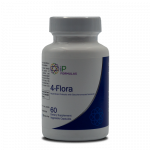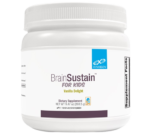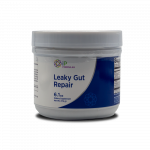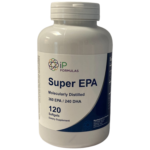
FREE SHIPPING TO U.S. AND PUERTO RICO FOR ALL ORDERS $100 AND OVER!
We are unable to accept returns on any products or test kits. All sales are final.
By visiting our site, you agree to our privacy policy regarding cookies, tracking statistics, etc. Read more
FREE SHIPPING TO U.S. AND PUERTO RICO FOR ALL ORDERS $100 AND OVER!
We are unable to accept returns on any products or test kits. All sales are final.
FREE SHIPPING TO U.S. AND PUERTO RICO FOR ALL ORDERS $100 AND OVER!
We do not currently ship internationally.
Whether or not it started there, whatever is ailing you has by now likely wreaked havoc with your gastrointestinal tract, or gut. It is for that reason, nearly all of our treatment interventions begin with “sealing and healing” your gut.
If you already know or strongly suspect that your gut is at least partially involved in your unique cluster of symptoms then read “The Short Version” below and take action. If on the other hand you need convincing please read our entire web-page on the “Gut-Brain Axis.”
Lastly, if you’re just bored and cruising around the internet, you need to get out more. No wonder your gut is such a mess.
The genes you inherit combined with myriad life stressors (emotional conflict, lousy diet, environmental toxins, sleep deprivation, sedentary lifestyle, running the pace that kills, etc.) alters the balance of microbial powers that compete for prime real estate within your gut (dybiosis). This dysbiosis causes unchecked total body (and brain) inflammation that results in imbalances in your hormones, neurotransmitters, immune cells, growth factors, and metabolic parameters. These imbalances in turn, based again on your genetic susceptibilities, result in your specific symptoms.
Rather than focus exclusively on relieving your down-stream symptoms, we strongly advocate intervening way upstream. Since we can’t change your genetic endowment, and because eliminating/reducing life stressors takes time, the farthest upstream we can get is to “seal and heal” your gut at the same time we are measuring – on the way to correcting – your hormonal, neurotransmitter, and immune imbalances.
For a nauseatingly thorough review of our approach to general adrenal support, please see Dr. Dave’s Four Faces of Adrenal Fatigue.
The graphic below summarizes our theory of the diseases of civilization as well as gives our general approach to health:
For more details about the likely connection between your symptoms and disease(s) of civilization and your gut, please read the following sections.
Diseases of Civilization (DOCs) – heart disease, diabetes, cancer, obesity, depression, dementia, arthritis, pain, asthma, irritable bowel, fibromyalgia, chronic fatigue and so on and so forth – are on the rise. The reasons for this are numerous and can be summarized as follows:
(*Cordain L, Eaton SB, Sebastian A, Mann N, Lindeberg S, Watkins BA, O’Keefe JH, Brand-Miller J. Origins and evolution of the Western diet: health implications for the 21st century. Am J Clin Nutr. 2005 Feb;81(2):341-54. Raison CL, Lowry CA, Rook GA. Inflammation, sanitation, and consternation: loss of contact with coevolved, tolerogenic microorganisms and the pathophysiology and treatment of major depression. Arch Gen Psychiatry. 2010 Dec;67(12):1211-24.)
The following sections elaborate on these themes and explain why “sealing and healing” the gut is one of our core interventions no matter what disease of civilization you suffer from.
Of course, since we are psychiatrists, our principle focus is on your brain.
Did you know that your gut has its own brain? It does and it is known as the enteric nervous system. This nervous system is a complex bundle of neurons that is tucked away in the lining of the esophagus, stomach, small intestine and colon. Like the brain, it has its own set of neurotransmitters for sending messages between nerve cells, and it has the ability to learn and remember. The brain and the enteric nervous system are actually developed from the same fetal tissue, but they are considered separate entities. They are connected by a long nerve “cable” known as the vagus nerve, and the two systems are in constant communication through neurotransmitter feedback along this nerve pathway.
A number of lines of research suggest a direct connection between the gut, activities of the brain, such as mood and behavior, and the micro-organisms that live in your gut (gut microbiota). For example, scientific studies in humans show that negative emotions (sadness, fear, and anger) are often associated with the development of acute GI infections. Conversely, chronic GI inflammation exerts multiple effects on mood, including symptoms of depression and fatigue. Risk factors for the development of irritable bowel syndrome include adverse life events, depression, and fretfulness. A recent study of the neurological and immune effects of a probiotic strain of Bifidobacteria infantis in rats suggests that this probiotic could have antidepressant effects.
Such findings showcase the close relationship between your intestinal tract, your brain, and your gut microbiota and support the use of probiotics and other measures not only for maintenance of intestinal health alone but also to address symptoms of some of our most common diseases of civilization (Grenham S, Clarke G, Cryan JF, Dinan TG. Brain-gut-microbe communication in health and disease. Front Physiol. 2011;2:94.)
Referring to a certain presentiment as a “gut feeling” is not so far off the mark; and having “butterflies in your stomach” when you are feeling anxious is more than just a metaphor. If what goes on in the brain can affect the enteric nervous system, then it is not surprising that what goes on in the gut can have a direct impact on the brain.
After all, there are 10X more bugs in your gut than cells in your entire body. Makes you wonder who’s in charge. Indeed, there are 500X more bugs in your gut than stars in the Milky Way. Hmmm!
A healthy digestive system is full of beneficial bacteria. These bacteria make vitamins that are essential to our health, such as vitamin K (needed for bone formation and blood clotting); and biotin, a B-complex vitamin necessary for activating enzymes that convert food to energy. The good bacteria also regulate the metabolism of cholesterol, detoxify poisons, and help to maintain a normal pH balance in the stomach.
As long as these beneficial organisms are in charge, the gut functions efficiently and sends positive feedback to the brain.
On the other hand, there are many things that can affect proper balance in the gut. This potentially unhealthy imbalance of microbial powers is often referred to as dysbiosis. In such a state of dysbiosis, “bad” bacteria, toxins in food, food allergens, yeast, and undigested food particles can precipitate a series of neurological and immune system responses that interfere with healthy brain function and disrupt communication between the brain and the rest of the body.
A healthy microbiota contains a balanced composition of many classes of bacteria. Symbionts are organisms with known health-promoting functions. Commensals are permanent residents of this complex ecosystem and provide no benefit or detriment to the host (at least to our knowledge). Pathobionts are also permanent residents of the microbiota and have the potential to induce pathology. In conditions of dysbiosis there is an unnatural shift in the composition of the microbiota, which results in either a reduction in the numbers of symbionts and/or an increase in the numbers of pathobionts.
The causes for this are not entirely clear, but are likely to include recent societal advances in developed countries. The result is non-specific inflammation, which may predispose certain genetically susceptible people to specific diseases of civilization. Hence the progression from genes and environment through your gut to your unique brand of disease.
Why should the gut figure so prominently in diseases of civilization including mental disorders? We believe that the composition of your microbiota can either shape a healthy “right-sized” immune response to life stressors or it can increase your risk for diseases of civilization.
After all, nearly three quarters of all your immune cells reside in your GI tract. The brain is alerted to inflammation by the immune system via protein molecules known as cytokines; in response, the brain releases stress hormones, and neurotransmitter levels are altered. This can lead to a variety of brain symptoms:
Moreover, when you are in a state of dysbiosis, partially digested food proteins called peptides, that under normal conditions cause no problems, become toxic to the gut and can interfere with gut-brain communication. These toxins can trigger or perpetuate mood and behavioral problems such as:
If that’s not bad enough, fermentation of certain starches produces toxic levels of ammonia, which can result damage to brain cells, causing:
Digestive system balance can be upset by a number of elements, including diet, medications, stress, toxins and other environmental factors.
When any of these occur, gut-brain balance is thrown into chaos. Neurotransmitters send faulty messages, causing a multitude of health problems; the body is also prevented from absorbing the nutrients it needs to maintain healthy function.
IF YOU EXPERIENCE ANY OF THE FOLLOWING SYMPTOMS, CHANCES ARE GOOD THAT YOUR DIGESTIVE SYSTEM IS OUT OF BALANCE, SPELLING BAD NEWS FOR YOUR HEALTH:
If you are suffering from any of the above symptoms, or if you believe you are at risk for imbalance due to stress, overuse of medications, alcohol consumption, or dietary concerns, it is recommended that you be tested for digestive dysfunction. There are a number of tests available which can help to determine the cause of your symptoms and indicate the proper treatment.
For all of the health issues that can be caused by an imbalance in the gut, digestive dysfunction can be treated relatively easily.
By following these simple steps to better digestive health, you can restore balance to your gut. By improving digestive function, you will feel energized and healthy; with your enteric nervous system working properly, you will experience increased mental clarity and a greatly improved sense of well-being and emotional balance.
Showing all 10 results







This site is protected by reCAPTCHA and the Google Privacy Policy and Terms of Service apply.